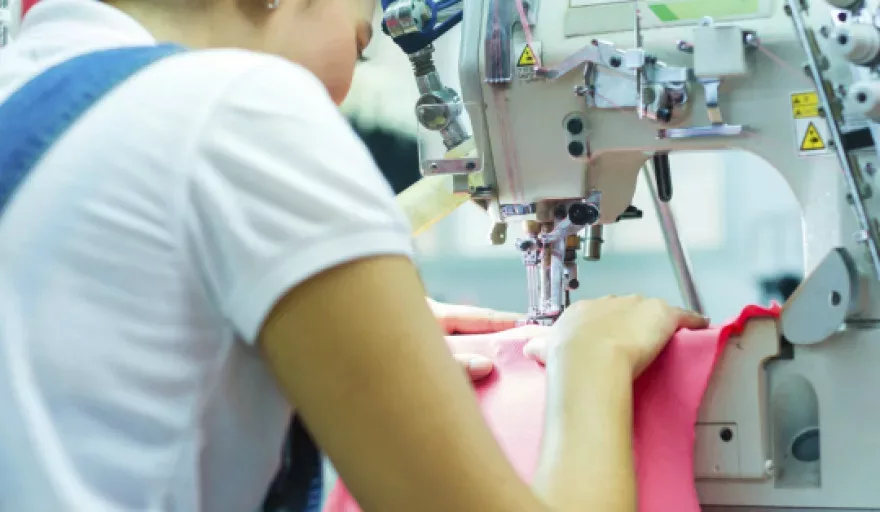A social and labour convergence project led by the world’s best known brands, retailers, industry groups and civil society has been launched with the aim of improving working conditions in apparel manufacturing across the world.
The project seeks to achieve real, sustainable change through the collective development of an industry-wide, standardised methodology for social and labour performance assessment in apparel and footwear supply chains. Through this, the industry believes that it will be able to significantly reduce the amount of money that it spends on duplicated auditing and invest the money saved in improving social welfare for millions of people employed in apparel manufacturing around the world.
This collaborative effort is being facilitated by the Sustainable Apparel Coalition (SAC); its renowned signatories including the likes of Nike, H&M, VFc-Timberland, Levi Strauss & Co., PVH Corp., Target, Columbia Sportswear Co., adidas, WRAP, SEDEX, NGO Solidaridad, Bureau Veritas, SGS, the International Apparel Federation and many others stakeholders at all levels in the value chain. The signatories are keen to attract more supporters to join the collaborative effort and evidently represent all sectors necessary in changing global standards; emanating from fashion, NGOs, the supply chain and auditing firms.
Baptiste Carriere-Pradal, Vice President Europe of SAC says: “The industry, having heard the call from so many different stakeholders, is convinced that the time has come to create greater alignment within the industry.
“We want to check less and act more. This initiative will accelerate a race to the top in social impacts within apparel and footwear manufacturing countries by shifting resources away from redundant and misaligned assessments to performance improvement and enhanced transparency.
“Convergence is the key to successfully increase transparency and to improve working conditions in global supply chains.”
Tobias Fischer, Sustainability Manager at H&M adds: “H&M strongly believes that the sustainability challenges we are facing in the textile supply chain requires joint efforts since all parties have a shared responsibility and have a stake in it.
“This was one of the key reasons H&M joined SAC as a founding member in 2010. When it comes to the social convergence group, specifically, we acknowledge the challenge to agree on a common standard. However, the industry has changed, the experiences from different initiatives (e.g. Zero Discharge of Hazardous Chemicals, The Accord and Alliance in Bangladesh) show that the industry has taken significant steps forward and are willing to find joint solutions for a common good.
“H&M is therefore ready to support this project for a common social assessment in the apparel supply chain.”
The level of proactive support from signatory spokespeople paints a positive picture for the future of the Coalition, and the goals it is trying to achieve, with the benefits not just limited to the labourers, but to each Company’s business and the sustainability of the global industry as a whole. The key now is finding the best strategy and ideologies to take it forward.
Marieke Weerdesteijn from Solidaridad comments: “We warmly welcome the convergence project. According to the World Trade Organisation, world exports in clothing and textiles reached nearly $800 billion in 2013.
“It is estimated that more than $1 billion annually is spent on social compliance audits in China alone. There is a lot of redundancy in social auditing. Dramatically reducing the number of audits by using one common assessment would allow for redirecting time and money towards improving working conditions in the apparel sector. The textile sector needs to focus more on continuous improvement rather than compliance.”
“As a company with a pioneering record on labour rights and a long history of industry collaboration, we welcome the opportunity to explore how to support more effective and efficient ways to raise labor standards in the apparel supply chain,” Michael Kobori, Vice President of Sustainability at Levi Strauss & Co. continued.
The initiative, which follows the implementation of a successful framework on environment by the SAC, will ultimately seek to provide an answer to calls from the European Commission, the Organisation for Economic Co-Operation and Development (OECD) and a number of European countries for a standardised, global approach.
Jonathan Ivelaw-Chapman, CEO at Sedex concludes: “Since the birth of ethical sourcing in the apparel and footwear supply chain more than 20 years ago, there has been a proliferation of differing codes, audits, protocols and approaches as part of Company efforts. This duplication and lack of convergence causes issues for the industry, drains suppliers’ resources and makes it difficult to benchmark their efforts.
“We hope that this new project will help drive convergence and encourage others to join us in this exciting collaboration.
“Social and labour assessment convergence to get to “one assessment” is an often repeated request of Sedex members, especially manufacturers, which is why Sedex is delighted to be a part of this new project.”




















